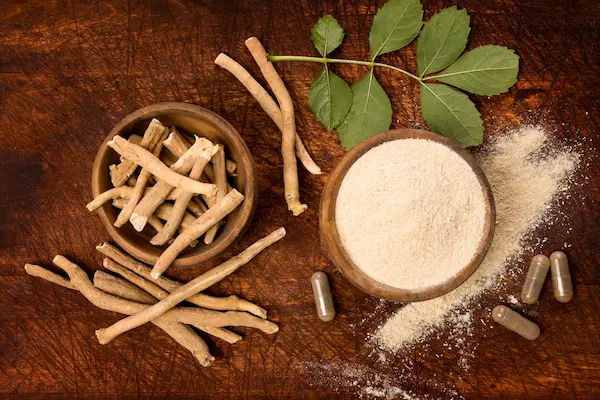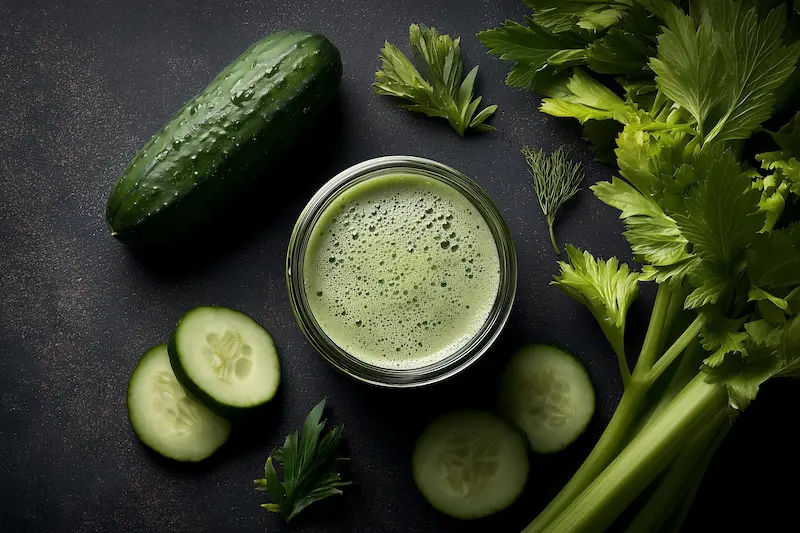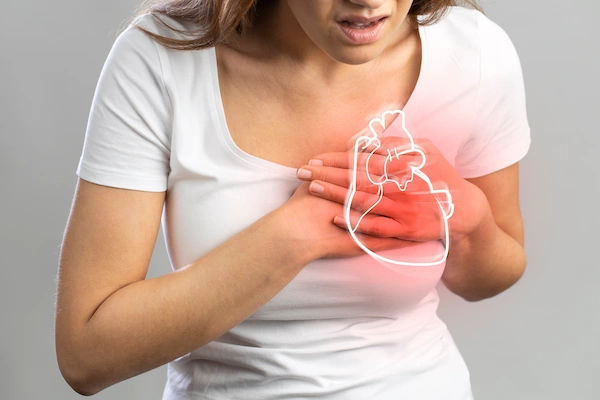Guide to 5 Things Happen Your Body When You Stop Drinking Alcohol
Know about alcohol quitting, step-by-step things based on time duration while quitting alcohol, things which happen to your body and more.

Written by Dr. Rohinipriyanka Pondugula
Reviewed by Dr. Shaik Abdul Kalam MD (Physician)
Last updated on 13th Jan, 2026

Introduction
Deciding to take a break from alcohol, whether for a month or for good, is one of the most impactful health decisions you can make. But what actually happens inside your body when you remove this ubiquitous substance? The transformation is more profound and rapid than you might think. From your brain to your skin, every system begins to recalibrate. This article will guide you through the key stages of this transformation, explaining the five major categories of positive changes you can expect. We'll explore the immediate relief in the first few days, the noticeable improvements within weeks, and the profound long-term benefits that solidify over months.
The First 48-72 Hours: Navigating the Initial Shift
The first few days after your last drink are a period of significant adjustment. Your body, accustomed to the presence of alcohol, begins the crucial process of detoxification. This phase can be challenging for heavy drinkers, but it's also where the first signs of recovery emerge.
Your Body Begins Detoxification
As soon as alcohol leaves your system, your body shifts from processing a toxin to repairing the damage it caused. The liver, your primary filtration organ, can finally focus on its other essential tasks, like metabolising fats and regulating hormones. For those with a dependence, this sudden absence can trigger alcohol withdrawal symptoms. These may include anxiety, tremors, sweating, nausea, and difficulty sleeping. It's important to listen to your body during this time. If symptoms are severe or persist beyond two weeks, it is crucial to consult a doctor online with Apollo24|7 for professional guidance and support. For most, these symptoms are mild and subside as the body stabilises.
Consult a Top General Practitioner for Personalised Advice
Improved Hydration and the End of Hangovers
Alcohol is a diuretic, meaning it causes your body to expel more water than it takes in, leading to dehydration. This is a primary cause of hangover symptoms like headaches, dry mouth, and fatigue. Within the first 48 hours of quitting, your hydration levels begin to normalise. Your cells retain more water, your kidneys function more efficiently, and the chronic dehydration caused by regular drinking is reversed. This is one of the most immediate and noticeable benefits of quitting alcohol—waking up feeling genuinely refreshed, without the familiar fog of a hangover.
The First Week to One Month: Noticeable Improvements Unfold
After the initial detox phase, your body enters a period of visible and tangible repair. This is when many people start to feel and see the positive effects, providing powerful motivation to continue.
The Truth About Sleep Quality
Many people believe alcohol helps them sleep, but it actually severely disrupts sleep architecture. While it may help you
fall asleep faster, it suppresses REM (Rapid Eye Movement) sleep, the deeply restorative stage crucial for memory consolidation and mood regulation. After about a week without alcohol, you will likely experience improved sleep without alcohol. You may find it easier to fall asleep naturally, experience fewer nighttime awakenings, and wake up feeling more rested and energised. This restoration of healthy sleep patterns has a cascading positive effect on every
other aspect of your health.
Skin Transformation and a Glowing Complexion
Alcohol dehydrates the skin and dilates blood vessels, leading to puffiness, redness, and a dull complexion. It also depletes vital nutrients like Vitamin A and C, which are essential for skin health and collagen production. Within a few weeks of abstinence, you may notice a significant skin transformation. As hydration improves and inflammation decreases, puffiness subsides, redness diminishes, and your skin regains its natural elasticity and glow. This is often one
of the most rewarding visual confirmations that your body is healing.
Stabilising Your Energy and Mood
Alcohol is a depressant that interferes with the brain's neurotransmitters, such as serotonin and dopamine, which regulate mood. After the initial adjustment period, your brain chemistry begins to balance. The energy slumps and irritability associated with drinking and withdrawal give way to more stable energy levels throughout the day and a generally more positive and resilient mood. This mental clarity after sobriety allows for better focus and a greater sense of emotional control.
One to Three Months: Deeper Healing Takes Root
Beyond the initial month, the benefits transition from noticeable improvements to foundational healing. This is when
more significant changes in weight and organ function become apparent.
Weight Management Becomes Easier
Alcohol is packed with "empty" calories and can stimulate appetite, leading to poor food choices. Cutting it out automatically reduces your daily caloric intake. Furthermore, because your liver is no longer preoccupied with metabolising alcohol, it can more efficiently process fats and sugars. This metabolic rebalancing, combined with the energy boost that encourages more physical activity, often leads to natural and sustainable weight loss after quitting alcohol, especially around the abdominal area.
Your Liver’s Remarkable Ability to Repair
The liver is an incredibly resilient organ. For individuals without advanced liver disease, the liver recovery after quitting alcohol begins in earnest during this period. Fat accumulation in the liver (fatty liver disease) can start to reverse significantly. Inflammation decreases, and liver enzymes return to healthier levels. You can support this process by maintaining a healthy diet. If you are concerned about your liver health, Apollo24|7 offers convenient home collection for tests like Liver Function Test (LFT) to monitor your progress accurately.
Three Months and Beyond: Long-Term Wellness
The long-term benefits of an alcohol-free lifestyle are where the most profound impacts on your overall health and longevity are realised.
A Sharper, More Focused Mind
Chronic alcohol consumption can affect brain structure and function, leading to problems with memory, concentration,
and cognitive speed. With sustained abstinence, studies show that the brain can repair itself through a process called neuroplasticity. This results in improved cognitive function, better problem-solving abilities, and enhanced memory. The mental fog lifts completely, revealing a sharper, more focused mind.
Strengthened Immune System
Alcohol suppresses the immune system, making you more susceptible to infections. Over the long term, removing this suppressant allows your immune system to function at its full capacity. You may find that you get sick less often, and if you do, your body can fight off illnesses more effectively. This strengthened defense is a key component of long-term vitality and wellness.
Conclusion
The decision to stop drinking alcohol is a gift to your body that keeps on giving. The journey, as we've seen, follows a clear and positive trajectory—from immediate detoxification and improved hydration to long-term enhancements in mental clarity, organ function, and immune strength. Each day without alcohol is a step toward a healthier, more vibrant you. The things that happen to your body are a testament to its innate ability to heal when given the chance.
Remember, this is a personal journey, and it's okay to seek support. If you're considering a change or are experiencing challenges along the way, professional guidance can make all the difference. If you have concerns about alcohol use or its impact on your health, booking a consultation with a doctor on Apollo24|7 can provide you with a personalised plan and the support you need to succeed. Your body is ready to heal; all it needs is your decision to start.
Consult a Top General Practitioner for Personalised Advice
Consult a Top General Practitioner for Personalised Advice

Dr Sujay P R
General Physician/ Internal Medicine Specialist
4 Years • MBBS
Bengaluru
Apollo Medical Center, Marathahalli, Bengaluru

Dr. Utsa Basu
Diabetologist
14 Years • MBBS , MD
Barasat
Diab-Eat-Ease, Barasat
(75+ Patients)

Dr. Shiv Krishna Mitra
General Practitioner
15 Years • MBBS GEN. MED. PGDRM, MCH
Kolkata
Samaritan Clinic, Kolkata

Dr. Rajesh R
General Practitioner
24 Years • MBBS
Bengaluru
Maruti Polyclinic and dental care, Bengaluru

Dr. Ashita Kuruvilla
General Physician/ Internal Medicine Specialist
7 Years • MBBS
East Midnapore
VIVEKANANDA SEBA SADAN, East Midnapore
Consult a Top General Practitioner for Personalised Advice

Dr Sujay P R
General Physician/ Internal Medicine Specialist
4 Years • MBBS
Bengaluru
Apollo Medical Center, Marathahalli, Bengaluru

Dr. Utsa Basu
Diabetologist
14 Years • MBBS , MD
Barasat
Diab-Eat-Ease, Barasat
(75+ Patients)

Dr. Shiv Krishna Mitra
General Practitioner
15 Years • MBBS GEN. MED. PGDRM, MCH
Kolkata
Samaritan Clinic, Kolkata

Dr. Rajesh R
General Practitioner
24 Years • MBBS
Bengaluru
Maruti Polyclinic and dental care, Bengaluru

Dr. Ashita Kuruvilla
General Physician/ Internal Medicine Specialist
7 Years • MBBS
East Midnapore
VIVEKANANDA SEBA SADAN, East Midnapore
More articles from General Medical Consultation
Frequently Asked Questions
1. How long does it take to feel the benefits of not drinking?
You can feel some benefits, like better hydration and the end of hangovers, within the first 48 hours. More significant benefits, like improved sleep and skin, appear within the first few weeks. Deeper healing of the liver and cognitive improvements continue over several months to a year.
2. Is it normal to feel worse before you feel better when you quit alcohol?
Yes, especially if you were a heavy drinker. This is due to alcohol withdrawal. Symptoms like anxiety, irritability, and sleep disturbances are common in the first week but are a sign that your body is recalibrating. If symptoms are severe, seek medical advice.
3. Will I lose weight automatically if I stop drinking?
While not automatic, it becomes much easier. By eliminating the empty calories from alcohol and often reducing poor dietary choices associated with drinking, most people experience weight loss, particularly if they maintain other healthy habits.
4. Can my liver really heal itself completely?
The liver has a remarkable ability to regenerate. In the early stages of alcohol-related liver damage (like fatty liver), the organ can often heal completely with abstinence. For more advanced conditions like cirrhosis, the damage may be permanent, but stopping alcohol is essential to prevent further progression.
5. What are some tips for staying motivated to quit drinking?
Track your progress in a journal, noting improvements in sleep, energy, and skin. Connect with supportive friends or groups. Calculate the money you're saving. Remind yourself of your 'why'—whether it's for better health, family, or personal growth.




